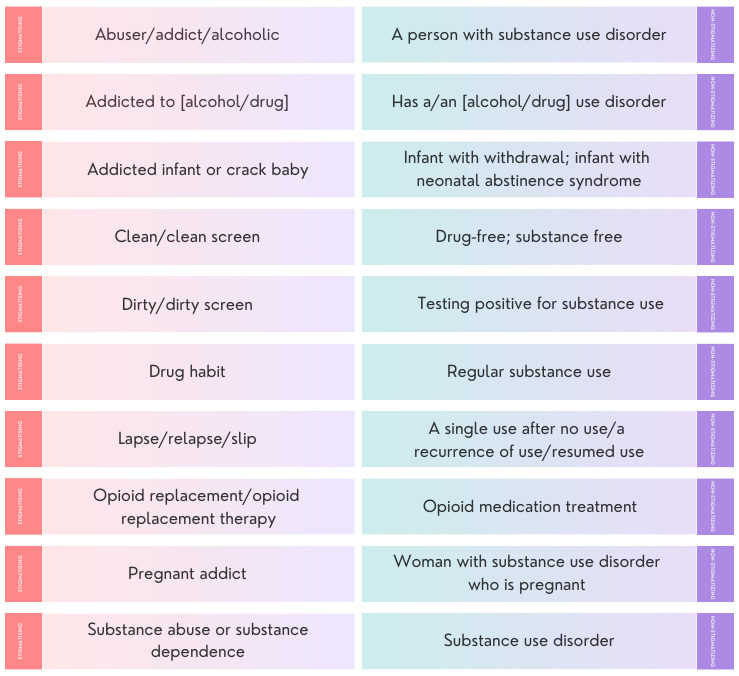What is Stigma?
Stigma refers to society's negative perceptions and attitudes towards certain groups, resulting in their marginalization and isolation. It manifests in various forms such as public, structural, self, and stigma against medications for opioid use disorder. Public stigma leads to discrimination and fear of individuals with addiction, while structural stigma creates systemic barriers to their inclusion. Self-stigma occurs when individuals internalize negative stereotypes, affecting their self-esteem. Stigma against medications for opioid use disorder results in misconceptions about their effectiveness, hindering access to treatment.
Stigmatizing Language
Stigmatizing language assigns negative labels and stereotypes to certain groups, contributing to social isolation and reduced self-esteem. Such language can impede individuals from seeking necessary medical assistance, perpetuating harmful societal attitudes and behaviors.
What are some Non-Stigmatizing language?
Language is an important key to eliminate stigma and discrimination and also inspire hope while advancing recovery. Here are some examples of preferred non-stigmatizing language.

Share Your Recovery Journey and Read Other Inspiring Stories
Discover a collection of inspiring personal stories from Recovery Allies and join us by sharing your own journey.
